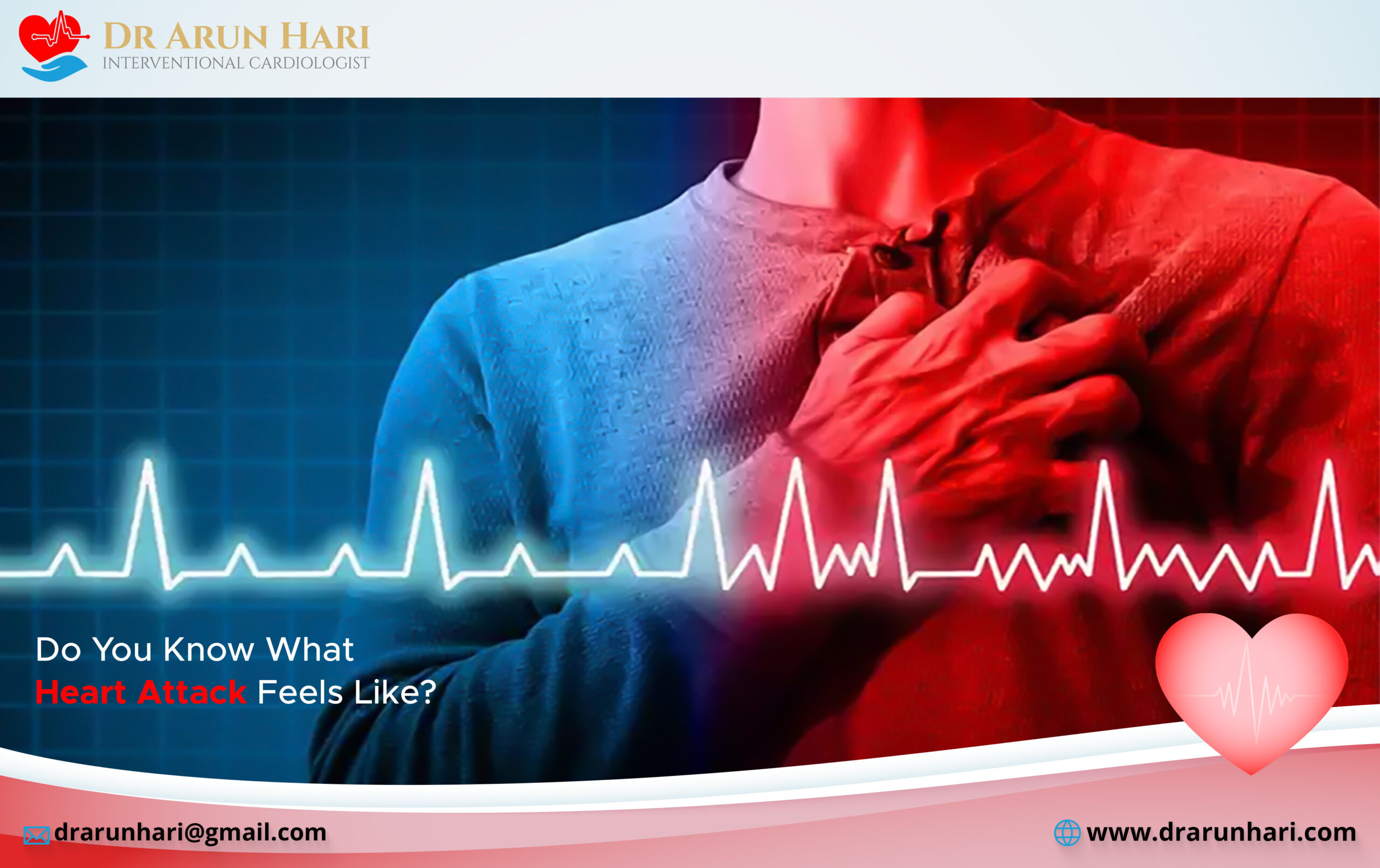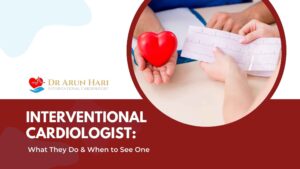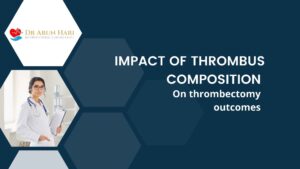What Is the Treatment for Heart Attack?
Contact Dr. Arun in Case of a Heart Attack
Have you ever wondered what heart attack feels like? Heart attacks are one of the leading causes of deaths around the world, so it is important to understand how to recognize the signs and symptoms of a heart attack.
Heart Attack Explained
A heart attack is a serious medical emergency that can cause immense physical and emotional pain. Heart attacks occur when the heart does not receive enough oxygenated blood in case where blood flow to the heart is blocked and the heart muscle is damaged or stops working. As a result, the heart muscle begins to die and chest pain or discomfort is usually the first sign that something is wrong. One or more of your coronary arteries become blocked, reducing the amount of blood and oxygen that can reach your heart muscle. This happens to be a medical emergency that requires prompt medical attention.
Heart Attack Symptoms
When experiencing a heart attack, people can experience a variety of symptoms, which generally tend to vary from 1 person to another. Also, symptoms of a heart attack can range from subtle to severe. Chest pain is the most common symptom, and can include crushing or heavy pressure, tightness, burning or aching pain. This pain can be sharp and sudden, or it may start and build in intensity over time. Other potential symptoms include the ones mentioned underneath:
- Shortness of breath
- Cold sweat
- Dizziness
- Sweating
- Fatigue
- Nausea
- Vomiting
- Pain in neck, arm(s), jaw, stomach and/or back
- Lightheadedness
These symptoms would explain to you what heart attack feels like!
Heart Attack Diagnosis
Diagnosing a heart attack is done by measuring the amount of damage your heart has suffered as well as determining the risk of further damage. Any treating doctor will first take your medical history and do a physical exam, and then use a battery of tests such as an electrocardiogram (EKG), an imaging test such as an echocardiogram, blood tests, cardiac catheterization, angiograms, and/or stress tests or other tests to assess your condition and check the health of your heart. These tests can help identify blockages or damage to the heart muscle.
What Is the Treatment for Heart Attack?
When it comes to treatment for heart attack, the goals are to stop the attack, to relieve symptoms, and to prevent further damage. Treatment for a heart attack involves medical intervention such as medications, lifestyle changes, and possibly surgery.
- Medications may include aspirin, antiplatelet drugs, beta-blockers, ACE inhibitors, and others to prevent damage to the heart muscle such as cholesterol lowering medicines, and blood pressure lowering medications.
- Lifestyle changes such as quitting smoking, exercising, and eating a healthful diet are also important for long-term heart health.
- If the blockage is severe, a doctor may recommend surgical intervention. In such cases, surgery may also be recommended, such as angioplasty to open blocked arteries or bypass surgery to reroute the blood flow around blocked arteries.
Contact Dr. Arun in Case of a Heart Attack
If you or someone you know experiences the symptoms of a heart attack, seek professional interventional immediately. Taking action quickly can help reduce the amount of damage to the heart muscle and improve the chance of survival. Regardless of your age or medical history, it is important to understand the signs and symptoms of a heart attack. The good news is that with proper diagnosis and treatment, you can reduce your risk of serious complications. So, contact Dr. Arun to get the best medical intervention in this regard if you or any of your loved one happens to experience any of the stated symptoms.




